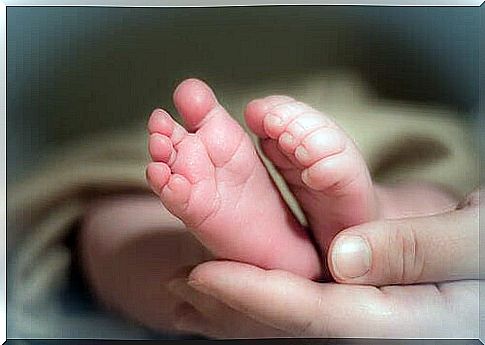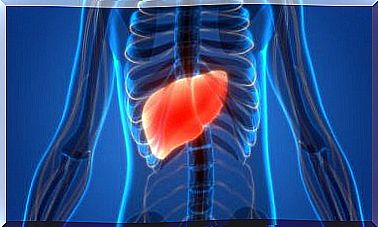Perinatal Death And Maternal Grief

Perinatal death means that the fetus is stillborn or dies soon after birth. In this case, the woman’s grief is very intense, and it also surprises her partner and the whole family.
A pregnant woman has previously decided to become a mother and has been actively involved in the pregnancy process, and she is eagerly awaiting the birth of her baby and becoming a mother. When a baby dies at the end of anticipation or as a newborn, the heart of the whole family breaks.
The woman, her partner, and the rest of the family face great grief. As is always the case with the death of a loved one, this loss leaves a deep imprint with the pain of not being able to get to know the baby.
When pregnancy becomes a sad statistic

When it becomes clear at the beginning of the expectation that the pregnancy is true, the joy is often insane. Then come many other feelings, expectations and hopes. First, however, it is necessary for the first trimester of pregnancy to go well to be sure that there are no major risks in pregnancy.
Miscarriage typically occurs before pregnancy 12-13. weeks. Although it also causes intense emotional stress, miscarriage is not the same thing in classification as perinatal death, i.e., the death of an near-born or newborn baby.
Pain caused by perinatal death is classified differently because the baby dies in the weeks close to birth, i.e. after the 22nd week of pregnancy in the womb or during the first week of life.
Perinatal death occurs silently

In addition to the great pain of losing a long-awaited child, there is usually no understanding in the social and work environment what kind of grief parents are dealing with. The process of acceptance and recovery is sometimes therefore slower and more complex.
There are many reasons that can intensify a woman’s difficult feelings that a baby is dead:
- miscarriages or previous perinatal deaths that have not been treated
- the time required to become pregnant
- a woman’s age, as over time the pressure to get pregnant increases
- a feeling of affection, especially if the child has already had time to be born
- lack of social support – medical centers and hospitals do not always provide special services for this situation
- the absence of the father if he has not wanted to commit to pregnancy
- the inability of the social environment to share experiences and memories, name a baby, or say goodbye to him
Stages of grief caused by perinatal death
The greatest grief can last for days, weeks, months, or years. It all depends on the nature of the woman and the circumstances that prevailed when the baby died.
Like any grief, this process involves several steps.
Prohibition phase
At this point, it’s hard to believe the baby is really dead. The woman’s mind has not been prepared to receive this gloomy news.
This state of shock and disbelief is due to the mind trying to deal with a crushing reality gradually.
The anger phase

In this case, the mother is upset and / or feels guilty about what happened. She is angry with herself, her partner and even the doctors who took care of the baby.
If a woman is religious, she is angry with God because she does not understand why this happened. It is also common to envy couples who have trouble-free pregnancies and are allowed to spend time with their baby.
The step of finding answers
This stage begins when guilt turns into confusion. “If I had done so” is a common thought among parents who have experienced this loss.
Mom repeatedly asks herself what would have happened or could have happened if she had done something else instead of one thing or another. She also imagines how wonderful it would be if the baby had been born.
Depression phase

Finding answers turns into depression. When faced with the inevitable reality of a baby’s death, certain feelings and symptoms emerge: a woman has sadness, reluctance, sleep disturbances, and a lack of appetite.
There is also anxiety about becoming pregnant again. Many women fear that the same will happen in their next pregnancy.
Approval phase
This is the last stage in the grief caused by perinatal death. In this case, the woman accepts that life should be continued despite the loss of the baby.
Gradually, a woman can return to her daily routines. However, it may take some time until she is ready to try the pregnancy again.
Advice on coping with the grief of losing a baby
If you have just lost your baby yourself, remember this: you have the right to experience the grief process. Grief is needed for you to cry, accept, and heal the wounds caused by non-fulfillment of desires.
To live through the different stages of grief, take the following advice:
- Your doctor should give you a detailed account of the medical problems that caused your baby to die. In addition, she needs to talk about the consequences of the situation for future pregnancies.
- Don’t stop yourself from talking about your baby and using his or her name with your partner, relatives, friends, and colleagues. To move forward in your pain, you don’t have to forget your baby you lost.
- Feel free to mourn. Avoid setting deadlines for recovery.
- Do whatever it takes to make you feel a little better every day.
- Take care of yourself on a physical and emotional level. If you need professional help, don’t hesitate to look for it.
- No one should put pressure on you about where to put your baby’s clothes and equipment.
- Smiles and laughter are good for health. Don’t be afraid to laugh or think you will disrespect your baby’s memory if you smile or feel happy.
- If you need a ritual to honor or remember your baby, don’t hesitate to create one.

Remember this too
The mourning of the infant’s death must be allowed to be separate from the causes that caused her death. A woman, her partner, and family have every right to experience and overcome their pain. Little by little, everyone is recovering, but this requires patience and waiting.









